Tourism will never be the same
Director-General of Tourism Council of Bhutan, Dorji Dhradhul, who was awarded the best professional- destination marketing award talks to Kuensel’s senior reporter Yangchen C Rinzin on the future of tourism

Director-General of Tourism Council of Bhutan, Dorji Dhradhul, who was awarded the best professional- destination marketing award talks to Kuensel’s senior reporter Yangchen C Rinzin on the future of tourism.
COVID-19 is an opportunity for TCB to reboot tourism – comment.
As such we are now taking a time-out from tourists to further improve our services and systems. In fact, the inspiration for this vision comes from The Golden Throne.
The Royal Command is – If the last tourist that left Bhutan after the advent of COVID-19 happens to be the first tourist that visits Bhutan after reopening, and use the same services (tour operator, airline, tour guide, driver, car, hotel, restaurant and same tourist sites), the tourist should be pleasantly surprised with a totally elevated experience – an experience that is much more beautiful, better organised, better services and cleaner sites than the last trip.
This means, during this rebooting time, we hope to restructure, redesign, reinforce, reskill, and revitalise our infrastructure, human resources, systems, services, cleanliness, and many others.
Apart from the tourism stimulus package, what is happening?
We hope to make planning travel to Bhutan easier, in-country services and systems better organised and seamlessly delivered, and the in-country experience more exclusive. We hope to achieve these by streamlining and strengthening our systems, procedures, services through better coordination, stronger collaboration amongst the stakeholders, and the use of ICT through digitalisation.
Towards the realisation of these objectives, we are working on building roadside amenities, maintenance, and management of tourist sites, beautification of places including highways, trek routes cleaning and digitisation, reskilling and training, making authentic Bhutanese souvenirs, among many.
Share an update on the local tourism promotion that TCB was supposed to implement within three months.
Pre-COVID-19, domestic tourism seemed to have not taken off. We see an opportunity in popularising domestic tourism products such as – visit 20 dzongkhags, pilgrimage, meditation, nature (trekking and camping), rafting, culture (festivals), meetings/workshops/conferences, and others.
We are developing a new product called “Druk Neykor” or “Bhutan Pilgrimage”. Druk Neykor intends to cover 108 must-visit sacred sites/monuments in 20 dzongkhags. The person will receive a “stamp book” designed in a traditional “scripture” style and get stamped as a reward (proof) of the visit. The tourist or pilgrim should aim to visit all these 108 sites/monuments over a period of time. We hope to launch this product with 16 sites/monuments in Thimphu.
Any tourist enquiring when Bhutan will reopen?
Yes, we’re getting inquiries. However, as of now, we’re not in a position to give any definite dates. We still have some bookings and we’re encouraging them to hold on. We have 206 bookings kept active as of now.
The government has decided to open tourist entry points in Samdrupjongkhar and Gelephu. How do you think this will help tourism?
Today, tourism is concentrated mainly in the western/central region, covering mainly Paro, Punakha, Thimphu, Bumthang and Chukha. This is to some extent due to the existing tourist entry points, which are in Paro and Phuentsholing. We are hopeful that these new entry points will lead to opening up new areas in the central and eastern parts of our country to tourists. This will help in spreading tourism to other parts of the country.
However, there are also other important factors such as tourist infrastructure, services, and products, which need to be developed simultaneously.
What has this pandemic taught the tourism industry especially in terms of hotels and policy? What were some of the drawbacks?
The importance of increased preparedness, and intensified collaboration among nations and for the global tourism industry by all tourism stakeholders have come out very clear.
I like to share a few lessons specific to tourism.
First, Bhutan’s ‘High Value, Low Volume’ – an overarching long-standing tourism policy once again proves its value. It allows for the continuation of tourism to Bhutan post-COVID-19 without too many adjustments internally. Because “mass tourism” never was Bhutan’s aim or approach.
Second, travel individually or in a small group most likely will become more popular as people might show some hesitation to travel in groups. Again, Bhutan is very much tailored to free individual travel as a result of its ‘High Value, Low Volume’ tourism policy.
Third, wellbeing and wellness travel products were already the major trends of the last couple of years, which is only expected to increase as a result of the pandemic. Many people will have a new or renewed appreciation for their health and be willing to invest in improving it. Bhutan has always been a place of wellbeing, it is a safe haven for those looking to get out of their rat race and to slow down. Bhutan has the opportunity to become a beacon of light and hope for travellers worldwide.
Fourth, talking about hotels, I like to believe that they are affected the most amongst the tourism stakeholders.
According to an in-house study carried out by TCB in November 2019 on tourist standard hotels, considering both the hotels in operations and those under construction, Thimphu (23% occupancy) and Paro (56 % occupancy) followed by Punakha (59% occupancy) we already have an oversupply of hotels for the next few years.
The study reported a national average occupancy of 39.5 percent, whereas the global recommended occupancy rate is a minimum of 65%. While the study did not include the non-tourist standard hotels, we suspect a similar situation if not worse in terms of occupancy.
Since it is not clear when COVID-19 situation will improve and the country will reopen its doors to tourists, if possible I like to suggest the hotels to consider alternative strategies such as the conversion of properties to residential buildings, commercial space, and office space, etc.
They could also encourage the affected employees to participate in the reskilling programmes and up-skilling programme and actively seek employment opportunities beyond the hotel industry through various government and private-led initiatives. Those who decide to continue should try to upgrade their facilities and service quality.
Where do you see tourism in the next one to three years?
We, like the rest of the world, hope for its restart and reopening soon, which is, of course, dependent on positive developments globally.
And regardless of when tourists start coming to Bhutan, we will surely welcome them with open arms and warm hearts to share our earthly paradise again with those looking for meaningful connections after a long period of isolation.
In the wake of the pandemic, as people worldwide would reflect on their lives, what truly matters to them, and most likely seek ways to improve their mental and physical well-being.
Bhutan, called ‘Menjong – The Land of Medicinal Herbs’ in its olden days, with its Gross National Happiness, its peaceful surroundings make a great destination for these travellers to reflect, relax, and reset. Bhutan’s well-being offer is increasing yearly.
From yoga and meditation to Buddhist philosophy teachings, from traditional medical treatments to other unique spa experiences, from retreats to pilgrimages.
Any comments?
In addition, although currently, we see some seasonality differences in the tourist numbers coming to Bhutan, in reality, Bhutan is a destination that has a great deal to offer year-round. This is why we are now focusing on communicating that message more clearly to the outside world so that more people will consider Bhutan as their next destination, irrespective of the time of year.
We are working to spread tourism to other parts of Bhutan, creating an even more immersive and unique experience than ever before. However, we will remain steadfast in keeping to the “High Value, Low Volume” policy gifted to the Bhutanese people by the Monarchs.
And as such remaining one of the top exclusive tourist destinations in the world, inspiring all those who visit Bhutan.
https://kuenselonline.com/tourism-will-never-be-the-same/












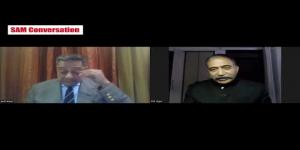
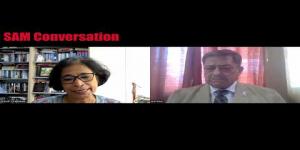

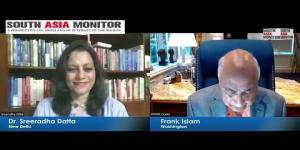
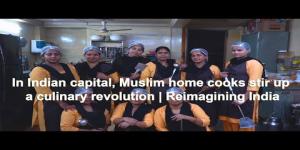
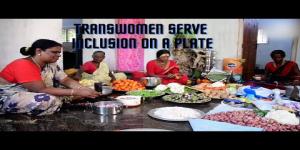

Post a Comment